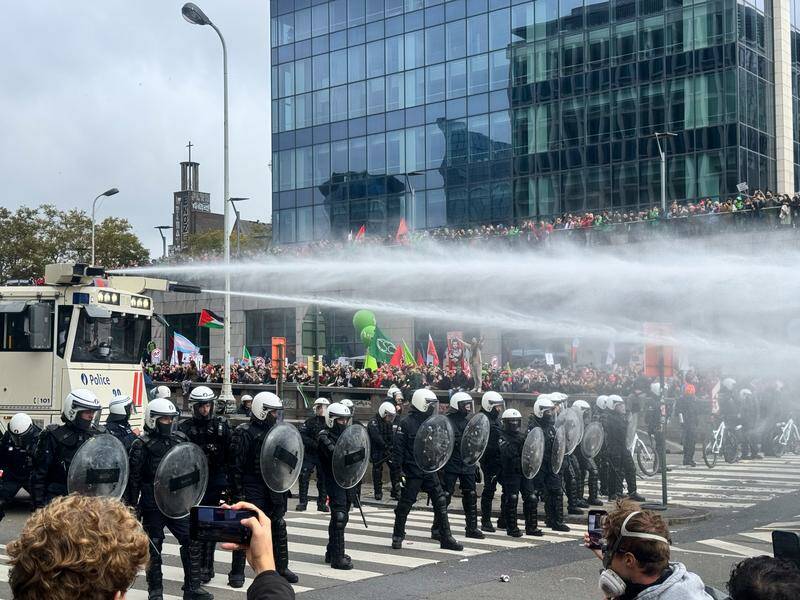
Tens of thousands of protesters took to the streets of Brussels on March 15, 2024, to voice their opposition to proposed austerity measures by Prime Minister Bart de Wever. The demonstration, organized by Belgium’s three major trade unions, aimed to challenge cuts to social welfare programs, including pensions and healthcare.
As the protest unfolded, police deployed tear gas to disperse the crowd, which had gathered in significant numbers. Estimates from protest organizers suggest over 150,000 individuals participated, while police reports placed the figure at around 80,000. The demonstration caused severe disruptions in the heart of the Belgian capital, affecting traffic and transportation hubs.
Protesters expressed their discontent through various means, including the use of drums, horns, and flares. Some individuals set off smoke bombs, adding to the chaotic atmosphere. The event reflected widespread anger towards the austerity measures proposed by De Wever, who took office in February 2024. His government aims to reduce spending in order to address Belgium’s economic challenges, which include an anticipated increase in the budget deficit.
Background on Austerity Measures
According to the Federal Planning Office of Belgium, the country’s budget deficit is projected to escalate to 6.5 percent of GDP by 2030. These figures underline the urgency behind De Wever’s proposed spending cuts, which have sparked significant public unrest.
The trade unions have called for country-wide strikes to oppose the austerity measures, highlighting the potential impact on vital public services. Union leaders argue that the proposed cuts threaten the well-being of millions of Belgians who rely on social welfare programs.
The unrest in Brussels is part of a broader trend seen across Europe, where austerity measures have frequently spurred public protests. As governments grapple with economic recovery post-pandemic, the balance between fiscal responsibility and social welfare continues to be a contentious issue.
Impact on Public Sentiment
The protests in Brussels reflect a growing sentiment among citizens who feel marginalized by government policies. Many demonstrators voiced concerns that the austerity measures disproportionately affect the most vulnerable populations. The presence of significant numbers of protesters signals a strong public rejection of the proposed policies.
As the situation unfolds, it remains to be seen how the government will respond to the widespread discontent. The protest has highlighted the challenges facing De Wever’s administration as it seeks to implement reforms amid mounting pressure from the public and trade unions alike.
The clash between police and protesters in Brussels underscores the volatility surrounding these issues. With the threat of further protests looming, the potential for continued unrest remains high as citizens demand a more equitable approach to economic recovery.







